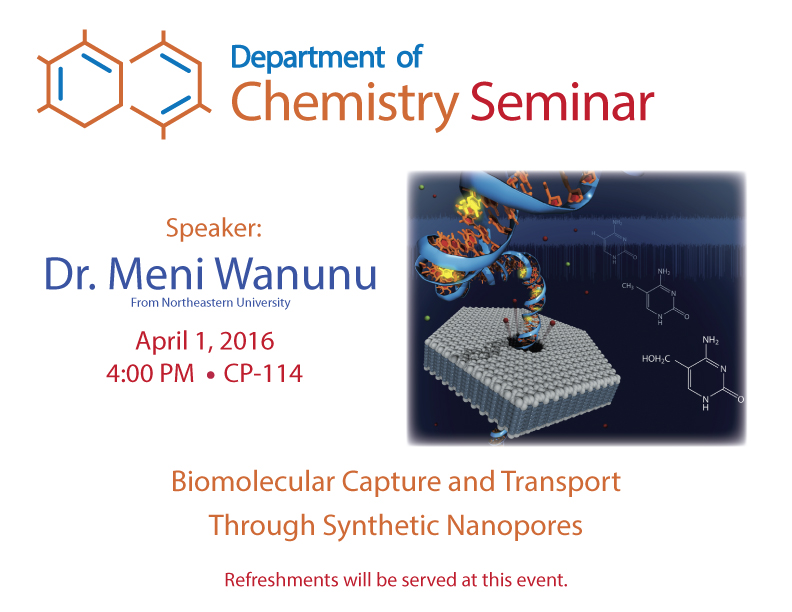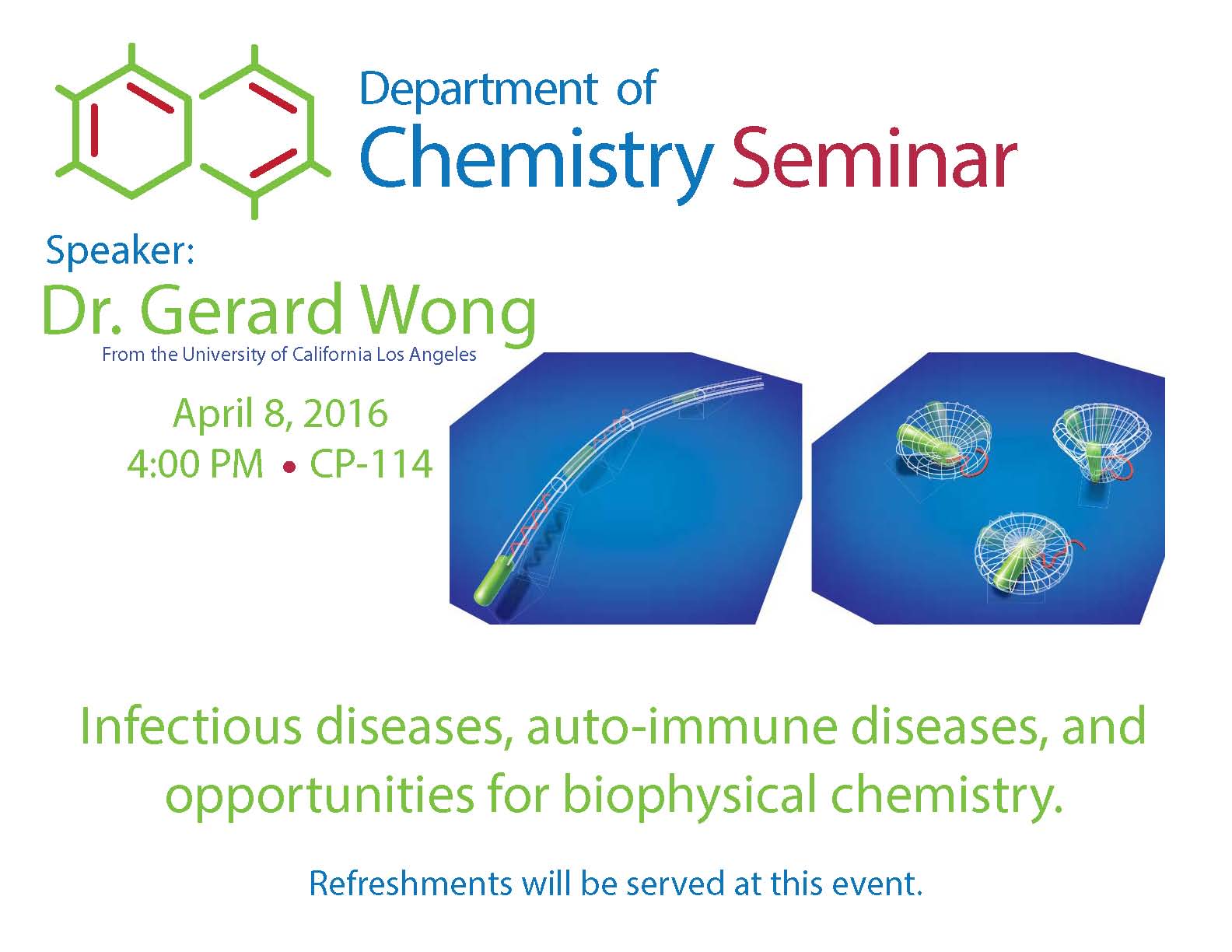Biomolecular Capture and Transport Through Synthetic Nanopores

Abstract: Nanopores are miniaturized electrical sensors with arguably the smallest detection volumes (sub-yoctometers, or below 10-24 m3).[1]Detection of molecules using nanopores involves electrical monitoring of ion current flow through a pore using a pair of electrodes placed across the nanopore-containing membrane. Our group focuses on the use of nanopores that range from 1 to 10 nm in all dimensions (diameter and thickness). We fabricate such nanopores using a combination of state-of-the-art ultrathin membrane fabrication and focused electron beam irradiation using a transmission electron microscope. Recently, we have found that nanopore dimensions critically determine the quality of detection and discrimination of biomolecules. I will talk about our efforts to distinguish different types of tRNA molecules, RNA-drug complexes,[2]and proteins[3]. In addition, I will mention our efforts to control DNA transport through nanopores, useful for genomic mapping.[4]Finally, I will mention our studies that probe nucleosomal interactions and influence by epigenetic factors,[5]as well as our latest efforts in combining nanopores and optical waveguides for direct DNA sequencing from picogram-level genetic material


